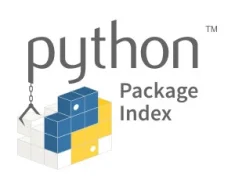“AI is a growing area of investment for us in 2024 as we hire to support our roadmap. We’re also investing more in our AI infrastructure capacity this year, and given many of our ambitious forward-looking plans will rely on having sufficient compute capacity, we expect this to be an area we invest more aggressively in over the coming years,” said Susan Li, Chief Financial Officer (CFO), Meta during the company’s Q4 2023 results conference call on February 1, 2024.
While Meta’s Q4 year-over-year revenue stood at $40.11 billion and for full-year 2023 at $134.90 billion, an increase of 25% and 16% respectively, the company anticipates its full-year 2024 capital expenditures to be in the range of $30-37 billion, a $2 billion increase of the high end of the prior range. In his pre-conference call remarks, Meta CEO Mark Zuckerberg largely focused on a rundown of the company’s plans to invest more in artificial general intelligence research, metaverse, compute resources, application of AI for multiple services, including messaging, advertising, and marketing, among others.
Why is Meta inclined towards open-sourcing AI models?
Meta is planning to open-source general infrastructure while establishing proprietary conditions for specific product implementations. With respect to AI, Zuckerberg said the general infrastructure will include language models that power generative AI, such as the company’s Llama models. In July 2023, Meta announced that its Llama 2 would be an open-sourced large language model, a claim that was questioned by members of the Open Source Initiative (OSI), as Meta placed certain restrictions on commercial use of the LLM.
“First, open source software is typically safer and more secure, as well as more compute efficient to operate due to all the ongoing feedback, scrutiny, and development from the community. This is a big deal because safety is one of the most important issues in AI. Efficiency improvements and lowering the compute costs also benefits everyone including us,” Zuckerberg explained as he briefly talked about how the company will benefit from its “long-standing strategy” of open-sourcing general infrastructure.
He also stated that as and when companies standardize the use of Meta’s open-sourced resources, integrating existing products with new innovations will become easier. Finally, the company aims to benefit from the popularity of open source among developers and researchers in terms of recruiting the “best people” at Meta for newer technological innovations.
“…open sourcing improves our models, and because there’s still significant work to turn our models into products and because there will be other open source models available anyway, we find that there are mostly advantages to being the open source leader and it doesn’t remove differentiation from our products much anyway,” Zuckerberg stated.
Focus on developing artificial general intelligence
In January 2024, Meta announced that it was merging the company’s AI research team FAIR and its generative AI development team GenAI for the unified team to focus on building artificial general intelligence (AGI). As reported by MediaNama earlier, AGI refers to computer systems that have human-like intelligence, and companies like OpenAI and Google’s Deepmind are also in pursuit of AGI. Unlike other companies, Meta plans to open-source its AGI, which will be a major differentiator.
“…it’s clear that we’re going to need our models to be able to reason, plan, code, remember, and many other cognitive abilities in order to provide the best versions of the services that we envision. We’ve been working on general intelligence research in FAIR for more than a decade, but now general intelligence will be the theme of our product work as well,” Zuckerberg revealed during the earnings call.
Emphasising a long-term approach towards developing AGI, Zuckerberg stated that the company is working on research needed for advanced Llama 5, 6 and 7, which will be used for developing general intelligence and establishing clear product targets for the application of such intelligence. In addition to generative AI features across the company’s Family of Apps, including WhatsApp and Instagram, for 2024, Meta will largely focus on launching Llama 3, expanding the capabilities of Meta AI assistant, and advancing their AI studio roadmap to enable users to create using AI.
How has Meta AI fared?
In September 2023, Meta introduced an AI-based conversation assistant Meta AI for WhatsApp, Messenger and Instagram, which can give real-time information and generate images based on text prompts that can be shared by the user with their friends on the platform. Currently available only in some countries, Meta AI features will now be rolled out prominently across Meta’s apps. When asked whether engagement with Meta AI has increased across the apps, Zuckerberg stated that currently, the company is not pushing Meta AI super-proactively and that the team is still deriving learnings from the way the features are being used.
In response to another question concerning messaging and AI features, Susan Li maintained that Meta is not expecting GenAI products to bring in revenue in 2024, but to be “meaningful contributors” over time.
“We’re testing AI chats on a very small scale today with a few businesses, but it will take time to continue making those AIs increasingly useful. We’re hearing good feedback from the businesses testing them, and we expect to make progress this year as we expand our tests further….So in all of these areas, I would say, we’re following our typical playbook of testing and tuning the experiences until they’re very good, and then we’ll invest in growth and eventually explore monetization,” Li added.
Using AI for advertising and marketing
With plans to monetise advertising services, and improve marketing performance, Meta aims to unleash the capabilities of AI across ad systems and product suites. For this, the company is building Advantage+ portfolio of solutions to help advertisers automate their advertising campaigns using AI.
“Advertisers can choose to automate part of the campaign creation set up process, such as who to show their ad to, with Advantage+ Audience. Or, they can automate their campaign completely using our end-to-end automation tool for driving online sales, Advantage+ Shopping, which continues to see strong growth,” Li said in her opening remarks.
Meta has also rolled out generative AI features such as text variations and image expansion for assisting ad creators and will be focusing on the delivery of similar ads-oriented objectives in 2024.
“So we’re really scaling our Advantage+ suites across all of the different offerings there, which really helped to automate the ads creation process for different types of advertisers. And we’re getting very strong feedback on all of those different features, advantage+ Shopping, obviously, being the first, but Advantage+ Catalog, Advantage+ Creative, Advantage+ Audiences, et cetera. So we feel like these are all really important parts of what has continued to grow improvements in our Ads business and will continue to going forward,” Li added.
STAY ON TOP OF TECH NEWS: Our daily newsletter with the top story of the day from MediaNama, delivered to your inbox before 9 AM. Click here to sign up today!
Also Read:





